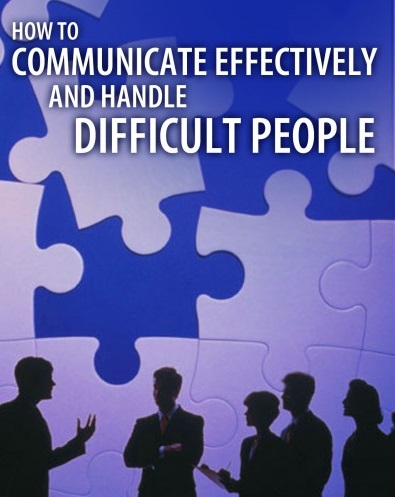Being good at your job is not enough these days. Employers are demanding teamwork and good communication skills. This course is designed to improve the behaviour of those people who work and communicate with others inside and outside their organization on a daily basis.
OBJECTIVES:
By the end of this Workshop, delegates will be able to:
- Analyze the basic principles underlying perception and human behavior.
- Understand how the communication process works
- Recognise the barriers to and the failures of effective communication
- Use appropriate techniques for communicating effectively
- Communicate effectively, both face to face and on the telephone
- Compare one-way versus two-way communication and analyze the verbal and non-verbal components of the communication process.
- Deal with difficult people and situations
- Feedback effectively and constructively
- Use communication as a motivation tool
- Be a good listener
- Effectively negotiate with customers leading to successful business conclusions.
- Role-play different personality types and identifies effective ways to deal with them.
WHO SHOULD ATTEND?
The programme is ideally suited to managers, supervisors and to anyone who feels that they have the potential to communicate more effectively and more easily with the people they deal with on a daily basis.
PROGRAM TOPICS:
Communication Skills:
- How can we communicate effectively
- Barriers which hinder effective communication
- Everyday examples of ineffective communication
Listening Skills:
- Reasons for poor listening
- Improving active listening
- The Importance of Listening
- Identifying your listening skills
- The personal listening profile
- Tips to improve listening skills
Perception and Human Behavior:
- The Significance of Perception in human Relationship
- The process of dealing with differences
The Process of Verbal Communication:
- Definitions and barriers
- Verbal and non-verbal Behavior
- One-Way versus Two-Way Communication
- Verbal, vocal, visual Communication styles
Dealing with Different Personalities and Difficult People:
- Ways to cultivate relationships and resolve conflict
- Basic assumptions about assertiveness
- Assertive communications
- Managing your boss
Words we can use:
- "I" instead of You
- Keeping it impersonal
- Avoiding giving orders
- Taking responsibility
- Avoiding defensiveness
- Showing empathy
- Acknowledging feelings
- Clarifying
- Forming a Team
- Effective Communication / telephone Skills
- Public Speaking
Video and Group Exercise
Feedback & Review
Workshop review and Close
WORKSHOP STYLE:
The workshop will be of five day’s duration consisting of interactive learning sessions, videos, examples and role-play exercises to provide the delegates with the knowledge and experience of using the key learning issues and techniques.




